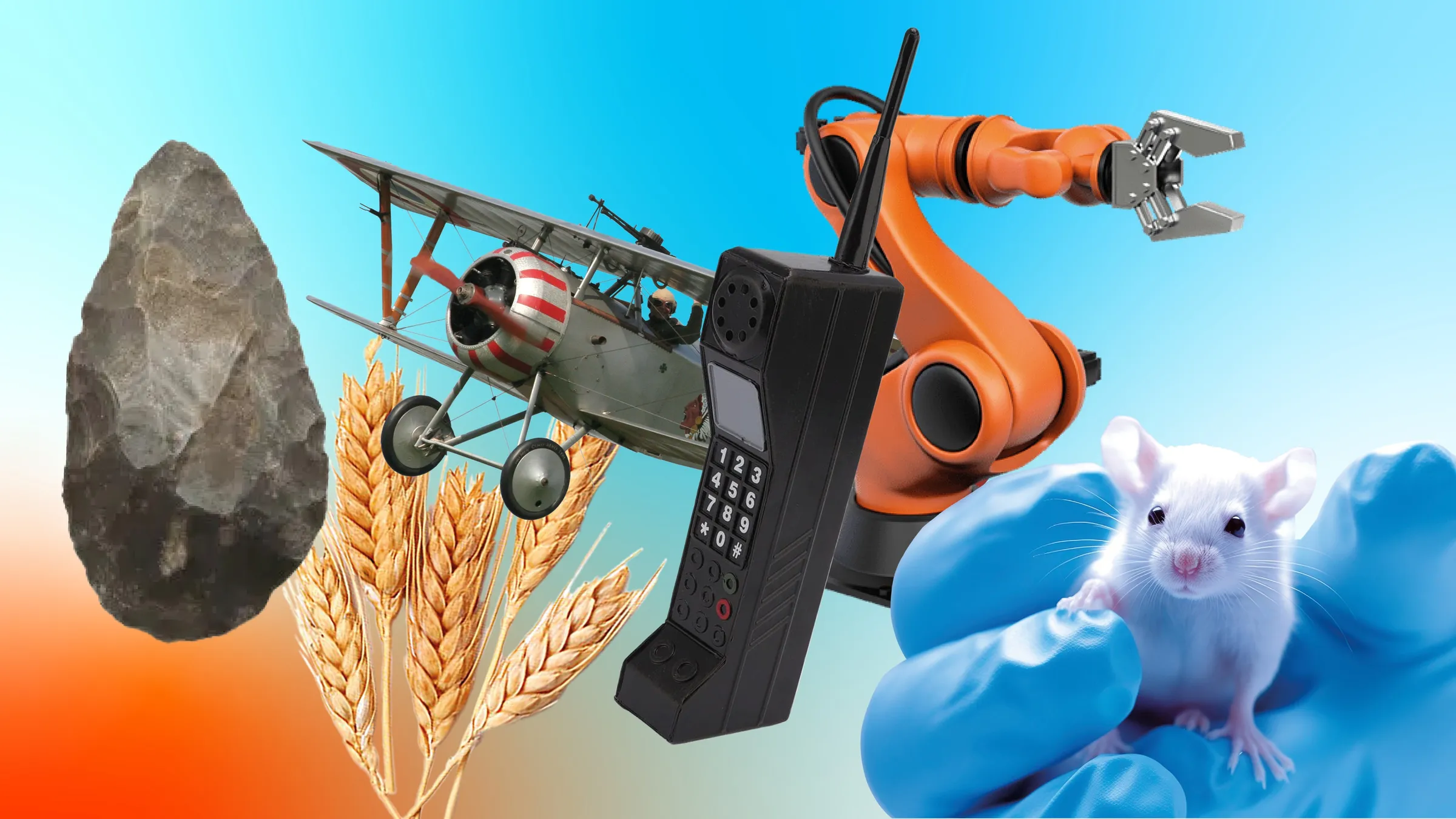For millions of years, life on Earth evolved through natural selection alone. But humans introduced a new force: artificial selection. Now, as technologies develop faster than biology can adapt, the rules are shifting once again. Could this speed mismatch threaten our species or offer a way forward? And most importantly: are we ready to take control?
Life as we know it, including ourselves, follows a curious pattern of change. Through the need and cost of adaptation, mutations and the harsh reality of natural selection, species are pushed forward, changing into new forms, adapting to a shifting environment. The Greatest Show on Earth continues to shape our biosphere.
From nature’s hand to human choice
That is, until 12,000 years ago. Although the oldest tools we’ve found are roughly 3 million years old, the Neolithic Revolution marked a true game changer. Our ancestors switched from foraging to the cultivation of crops, harvesting them primarily as a source of nutrition.
With the cultivation of crops, and later the domestication of animals, we introduced not only new technologies, but also the concept of artificial selection: a controlled form of evolution that continues to shape our planet and its inhabitants today. Where natural selection may take 12,000 to 330,000 generations to branch off a new species, we created a shortcut that, in some cases, takes just 5 to 25 generations. This is one of many technologies that became part of our nature over time, changing the course of our own evolution.
Speed limits of the human body
The question now is: how will our evolution continue at this rapid pace? Despite many imaginative examples such as cyborgs or designer babies, reality is likely more complicated. We still don’t fully understand how the fast introduction and turnover of technologies impacts our biological development.
The next mutation could be digital
We do know that tools influenced the brain and hands, farming changed the digestive tract, and clothing affected our thermoregulation. The widespread integration of digital devices may be the next evolutionary frontier. Thinner, longer fingers for faster typing? Eyes adapted to screens instead of natural light? These might sound like logical developments, but how many generations will it take before such traits become obsolete, or even disadvantageous? The pace of technological change far exceeds that of evolution.
Redesigning ourselves or letting go?
Altering ourselves through artificial selection might offer a solution. Our knowledge of genetics has grown immensely, but the many unanswered questions suggest we’ve only scratched the surface. And history is littered with examples of societies attempting to control evolution, often for misguided and horrific reasons. Still, letting evolution run its course without intervention might prove just as dangerous for part of our species.
With breakthroughs in biogenetics and related technologies expected in the coming 5 to 25 years, now may be the right time to ask: should we take evolution into our own hands?


Comments (0)
Share your thoughts and join the technology debate!
No comments yet
Be the first to share your thoughts!